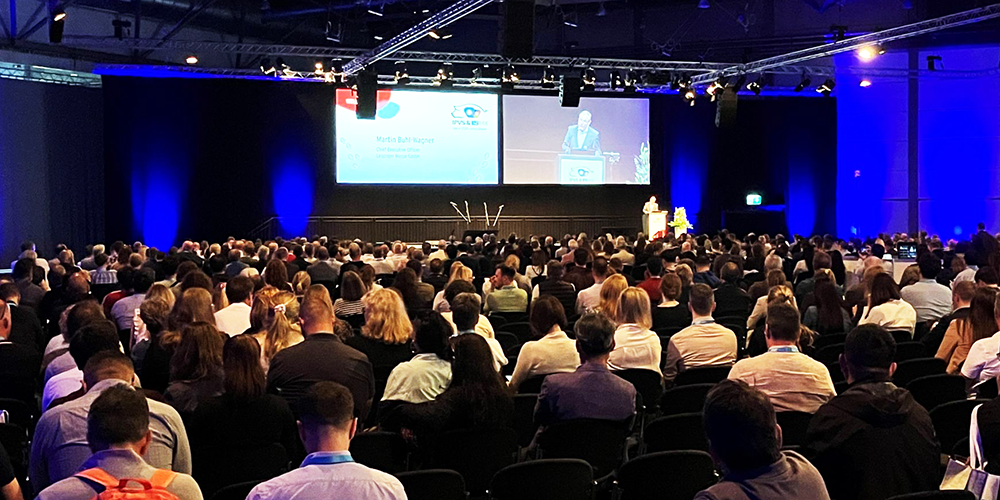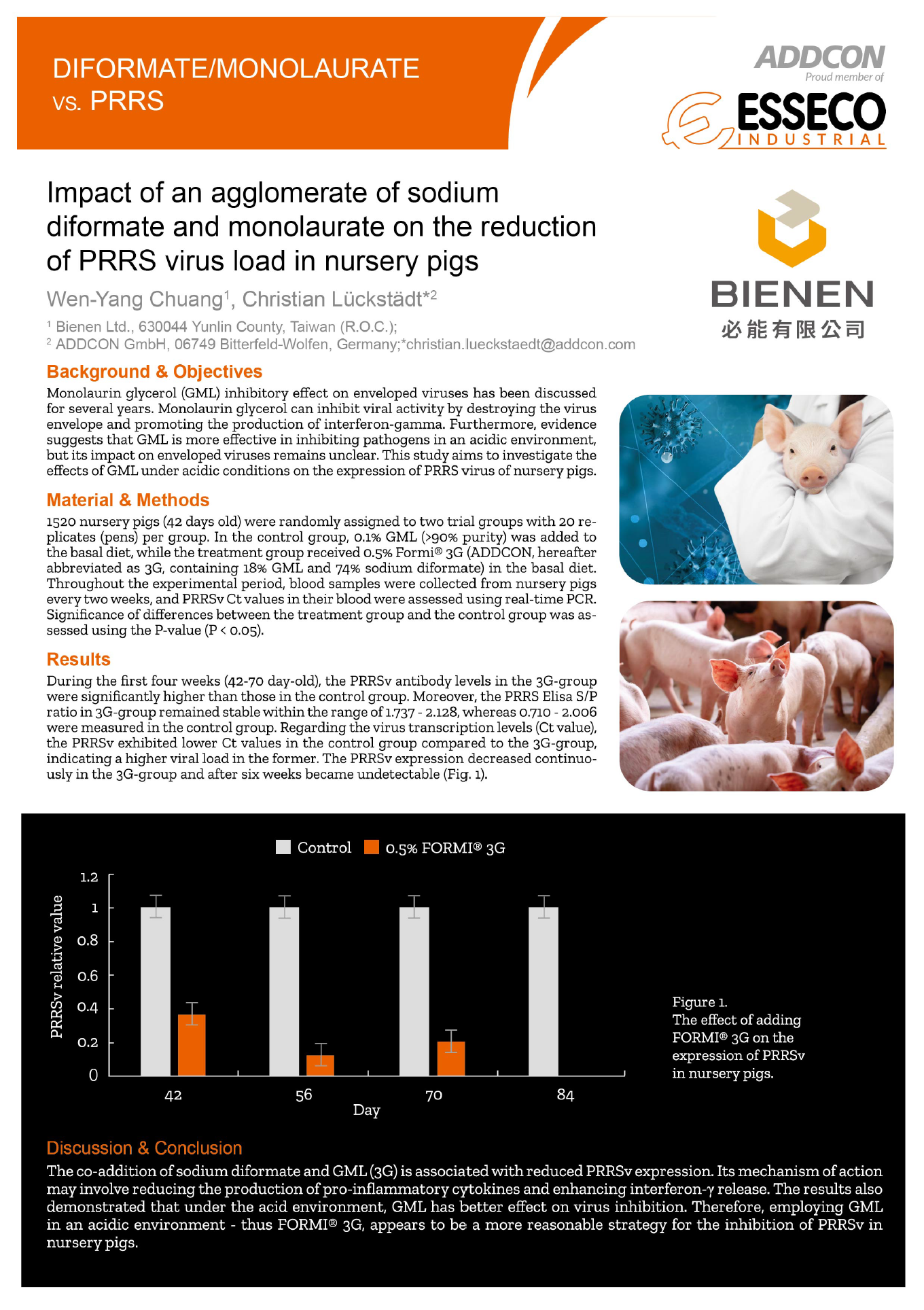
Our company and the Addcon GmbH in Taiwan have made a condensate of sodium diformate and monolaurin to reduce the PRRS virus in nursery pigs. The quantity impact test was presented at the 27th IPVS and 15th ESPHM Conference in Leipzig, Germany, from June 4 to 7, 2024.
The inhibitory effect of glyceryl monolaurin (GML) on enveloped viruses has been discussed for years. Monolaurin can inhibit viral activity by disrupting the viral envelope and promoting the production of interferon-γ. There is evidence that monolaurin has a better inhibitory effect on pathogens in acidic environments, but its impact on enveloped viruses remains unclear.
1520 nursery pigs aged 42 days were randomly assigned to two groups: the control group was supplemented with 0.1% monolaurin, and the treatment group was1 supplemented with 0.5% Addcon Formi 3G (Addcon Formi 3G, containing 18% monolaurin and 74% Sodium diformate), 20 repetitions per group.
The results showed that the PRRS virus antibody level in the treatment group was significantly higher than that of the control group in the first four weeks (42-70 days of age). The PRRS ELISA S/P ratio range of the treatment group was 1.737 - 2.128, while that of the control group was 0.710-2.006. The Ct value of the PRRS virus in the control group was lower than that in the treatment group, indicating that the viral load in the control group was higher. PRRS virus expression continued to decrease in the treatment group and became undetectable after six weeks.
It is worth noting that the effect of GML alone was poor, the PRRS viral load in the control group was higher, and the viral antibody levels and Ct values were not as significant as those in the treatment group. Therefore, the combined addition of sodium diformate and monolaurin is associated with reduced PRRS viral expression, potentially involving reduced production of pro-inflammatory cytokines and enhanced interferon release. In addition, monolaurin has a better inhibitory effect on viruses in an acidic environment.


Our company and the Addcon GmbH in Taiwan have made a condensate of sodium diformate and monolaurin to reduce the PRRS virus in nursery pigs. The quantity impact test was presented at the 27th IPVS and 15th ESPHM Conference in Leipzig, Germany, from June 4 to 7, 2024.
The inhibitory effect of glyceryl monolaurin (GML) on enveloped viruses has been discussed for years. Monolaurin can inhibit viral activity by disrupting the viral envelope and promoting the production of interferon-γ. There is evidence that monolaurin has a better inhibitory effect on pathogens in acidic environments, but its impact on enveloped viruses remains unclear.
1520 nursery pigs aged 42 days were randomly assigned to two groups: the control group was supplemented with 0.1% monolaurin, and the treatment group was1 supplemented with 0.5% Addcon Formi 3G (Addcon Formi 3G, containing 18% monolaurin and 74% Sodium diformate), 20 repetitions per group.
The results showed that the PRRS virus antibody level in the treatment group was significantly higher than that of the control group in the first four weeks (42-70 days of age). The PRRS ELISA S/P ratio range of the treatment group was 1.737 - 2.128, while that of the control group was 0.710-2.006. The Ct value of the PRRS virus in the control group was lower than that in the treatment group, indicating that the viral load in the control group was higher. PRRS virus expression continued to decrease in the treatment group and became undetectable after six weeks.
It is worth noting that the effect of GML alone was poor, the PRRS viral load in the control group was higher, and the viral antibody levels and Ct values were not as significant as those in the treatment group. Therefore, the combined addition of sodium diformate and monolaurin is associated with reduced PRRS viral expression, potentially involving reduced production of pro-inflammatory cytokines and enhanced interferon release. In addition, monolaurin has a better inhibitory effect on viruses in an acidic environment.
